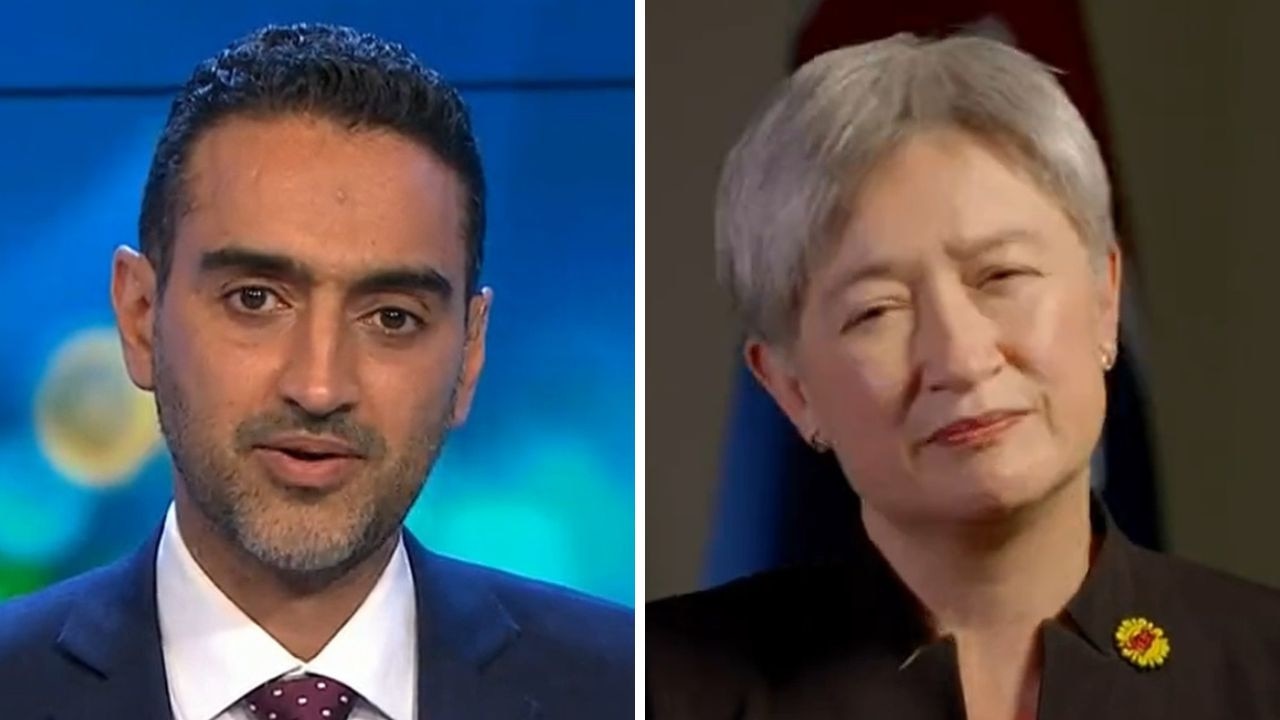The Project co-host Waleed Aly and Labor Senator Penny Wong were caught in a tense exchange on Wednesday night just hours after the date of the Voice referendum was finally revealed.
Earlier that day, Prime Minister Anthony Albanese announced Aussies would head to the polls on October 14 to thunderous applause at the Playford Civic Centre in the working-class Adelaide suburb of Elizabeth.
The Channel 10 program invited Senator Wong to discuss the Yes campaign and Nationals Senator Bridget McKenzie for the No side on Wednesday night’s show, which aired as opinion polls suggest support for the Voice has been flagging.
But while Ms McKenzie argued that an Indigenous Voice to Parliament wouldn’t solve problems facing First Nations people, Senator Wong insisted the push for the Voice came from Indigenous Australians themselves.
“It is a good thing to listen to the people who this affects and eight out of 10 Aboriginal and Torres Strait Islander Australians support the Voice,” she said.
“This idea hasn’t come from Canberra. It hasn’t come from political parties. It hasn’t come from the Labor Party. It came out of consultations across our country.
“What I’d say to Bridget and to others, is maybe we should listen to the people who are affected so that we can get better outcomes. So we can spend money on the things that matter and not waste money where it doesn’t work.”
Comedian Nick Cody then pointed out that a year ago, 65 per cent of the country supported the Voice, while today, the Yes vote had slipped to just 48 per cent.
“It looks like it is heading for a loss. What happened?” he asked.
“Look, change is always hard. It is quite useful, isn’t it, to go back through history and think about all the things that we’ve had to fight for to change our country and very, very rarely is that change won easily, whether it is the previous referendum or marriage equality or native title legislation or the apology, which was opposed by Bridget McKenzie’s party and many others and now we look back at many of these events and we think, well, they were good things, but they were opposed at the time, and I think we’re seeing that now,” Senator Wong replied.
“What I’d say to your viewers is, if you don’t know, please find out.
“Please talk to people. Please go to the website. Please talk to the many community volunteers from sporting clubs to communities of faith who are supporting this so they can listen to your questions and answer them.”
Senator Wong was then asked for her argument against the widespread complaint from the No side that the Voice would provide for just one group of Australians in the Constitution.
“A vote for No means more of the same and let’s remember what more of the same is, you know, it is a suicide rate that’s twice as high. It is incarceration rates which are higher. It is poorer outcomes in health and education and poorer outcomes for kids,” Senator Wong explained.
“You’re less likely to see your first birthday if you are an Aboriginal and Torres Strait Islander.
“It is about making sure that parliament and government can listen to our First Australians who we know do experience enormous disadvantage and of course, want much more for their children.”
However, things took a tense turn when Aly pointed out a common fear among potential No voters that a successful Yes vote could open the door to fresh demands, such as reparations or a treaty, and asked whether the Voice could be the “first step” towards such an outcome.
But the question was bluntly shut down by a clearly frustrated Senator Wong.
“No, of course it is not. You know that Waleed, and I appreciate you have to put that to me,” she said.
“But those who have been around in politics for a while might remember the apology debate, the apology was opposed by Peter Dutton and John Howard and many in the Coalition at the time and on that basis, on the basis of some of the misinformation or the things that you’ve just put to me.”
Finally, Senator Wong urged Australians to remember what we would be voting for.
“We are voting on a Voice. We are voting on an advisory committee,” she said.
“Whatever people might think about other matters, that’s what we are voting on, that’s all we are voting on and one of the things that strikes me about the No campaign (is) they want to talk about everything else.”
The Yes campaign now has just six weeks to win over Aussies to the cause, with South Australia and Tasmania expected to be key battlegrounds.
